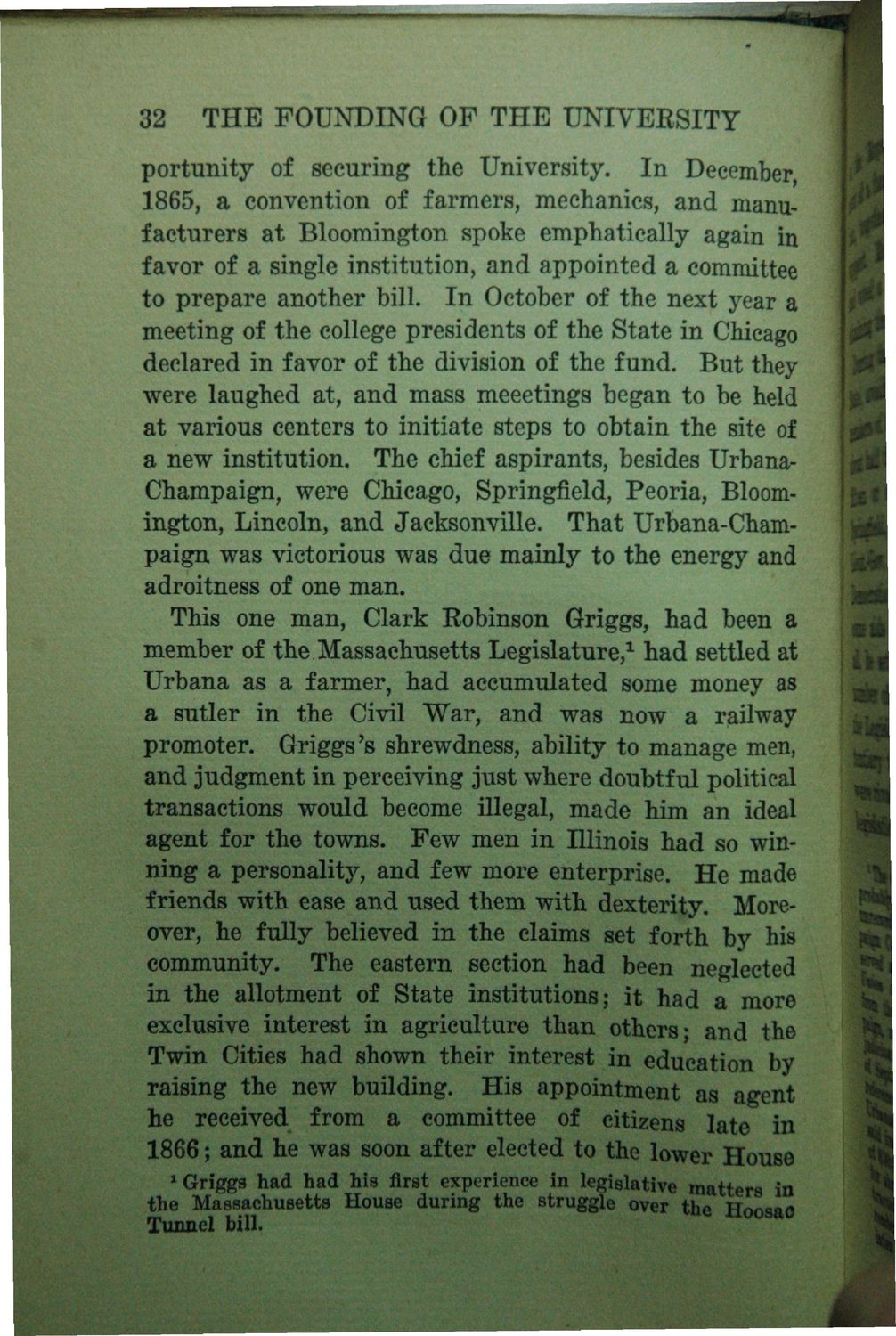| |
| |
Caption: Book - History of the University (Nevins)
This is a reduced-resolution page image for fast online browsing.

EXTRACTED TEXT FROM PAGE:
32 THE FOUNDING OP THE UNIVEBSITY portunity of securing the University. In December 1865, a convention of farmers, mechanics, and manufacturers at Bloomington spoke emphatically again in favor of a single institution, and appointed a committee to prepare another bill. In October of the next year a meeting of the college presidents of the State in Chicago declared in favor of the division of the fund. But they were laughed at, and mass meeetings began to be held at various centers to initiate steps to obtain the site of a new institution. The chief aspirants, besides UrbanaChampaign, were Chicago, Springfield, Peoria, Bloomington, Lincoln, and Jacksonville. That Urbana-Champaign was victorious was due mainly to the energy and adroitness of one man. This one man, Clark Robinson Griggs, had been a member of the Massachusetts Legislature,1 had settled at Urbana as a farmer, had accumulated some money as a sutler in the Civil War, and was now a railway promoter. Griggs's shrewdness, ability to manage men, and judgment in perceiving just where doubtful political transactions would become illegal, made him an ideal agent for the towns. Few men in Illinois had so winning a personality, and few more enterprise. He made friends with ease and used them with dexterity. Moreover, he fully believed in the claims set forth by his community. The eastern section had been neglected in the allotment of State institutions; it had a more exclusive interest in agriculture than others; and the Twin Cities had shown their interest in education by raising the new building. His appointment as agent he received from a committee of citizens late in 1866; and he was soon after elected to the lower House Griggs had had his first experience in legislative matters in the Massachusetts House during the struggle over the Hoosao Tunnel bill. 1
| |